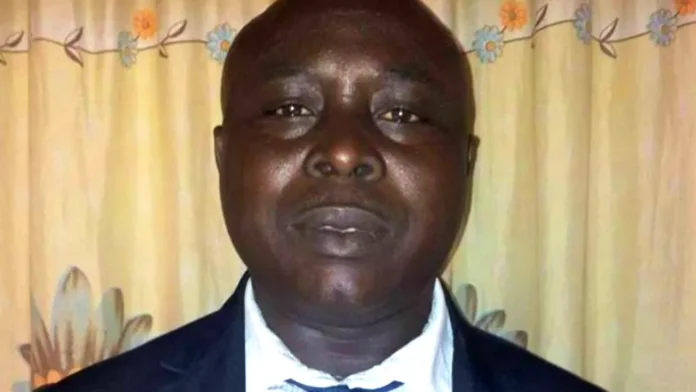By: Alieu Jallow
Nine years to the day since Gambian democracy activist Solo Sandeng led a peaceful protest demanding electoral reform – only to pay the ultimate price – the EF Small Centre for Reconciliation and Justice (EFSCRJ) has issued a stirring tribute to his courage, alongside a renewed call for urgent democratic reforms.
On April 14, 2016, armed with nothing but a megaphone and a banner, Sandeng and his companions stood beneath the scorching West African sun at Westfield Junction, demanding change. The Yahya Jammeh regime responded with swift brutality: Sandeng was arrested, tortured, and killed in custody. His fellow protesters endured severe violence at the hands of the now-defunct National Intelligence Agency (NIA).
In a commemorative statement released today, EFSCRJ lauded Sandeng’s bravery and that of his fellow demonstrators, describing the protest as a watershed moment in The Gambia’s pro-democracy movement – one that helped ignite the Kalama Revolution and paved the way for the 2016 Grand Coalition that eventually ousted Jammeh.
The statement read that the Centre pays tribute to Solo Sandeng and all Gambians who sacrificed their lives, limbs, resources, and freedom for the liberation of the country – a cause it remains committed to defending and advancing.
While acknowledging the Barrow administration’s initial steps – including the prosecution and conviction of NIA operatives and the 2023 national memorial in Sandeng’s honor – the Centre expressed growing concern over what it described as The Gambia’s “fledgling state of democracy.”
Nearly a decade later, EFSCRJ lamented the lack of substantial electoral reforms, accusing the very political parties that once championed Sandeng’s cause of betraying their promises.
The Centre decried the continued use of the 1996 Elections Decree-crafted under military rule – and condemned the ongoing disenfranchisement of diaspora Gambians. It also criticized the controversial practice of attestation, which has long raised questions about the integrity of the voter registration process.
The statement said the Centre is deeply disturbed that the political parties and politicians who became the direct beneficiaries of the April 14 protest have failed to live up to its ideals.
Referencing the 2015 GOFER electoral reform proposal – submitted to national and international stakeholders, including the UN, AU, and ECOWAS – EFSCRJ called for urgent legislative action to pass the long-delayed Elections Bill, including Clause 14, which would enable diaspora voting.
The Centre also issued a bold demand for voting rights to be extended to prisoners, insisting that neither incarceration nor living abroad should strip a Gambian citizen of their sovereign right to vote.
EFSCRJ anchored its call in a broader historical context, invoking the legacy of EF Small, the iconic nationalist who in the 1920s championed the principle of “No taxation without representation.” Linking Sandeng’s sacrifice to this enduring fight for democratic rights, the Centre reaffirmed its commitment to pursuing reforms that honor the struggles and sacrifices of Gambian heroes.
The statement concluded that elections are the lifeblood of self-governance, ensuring that power flows from the people, not from force or privilege. This, it said, is the legacy Solo Sandeng represents and one the EF Small Centre vows to uphold.
As The Gambia approaches another electoral season, EFSCRJ has declared 2025 the Year of Transparency and Accountability, urging both leaders and citizens to rise to the moment and help make the vision of a fully inclusive, participatory democracy a lived reality.




